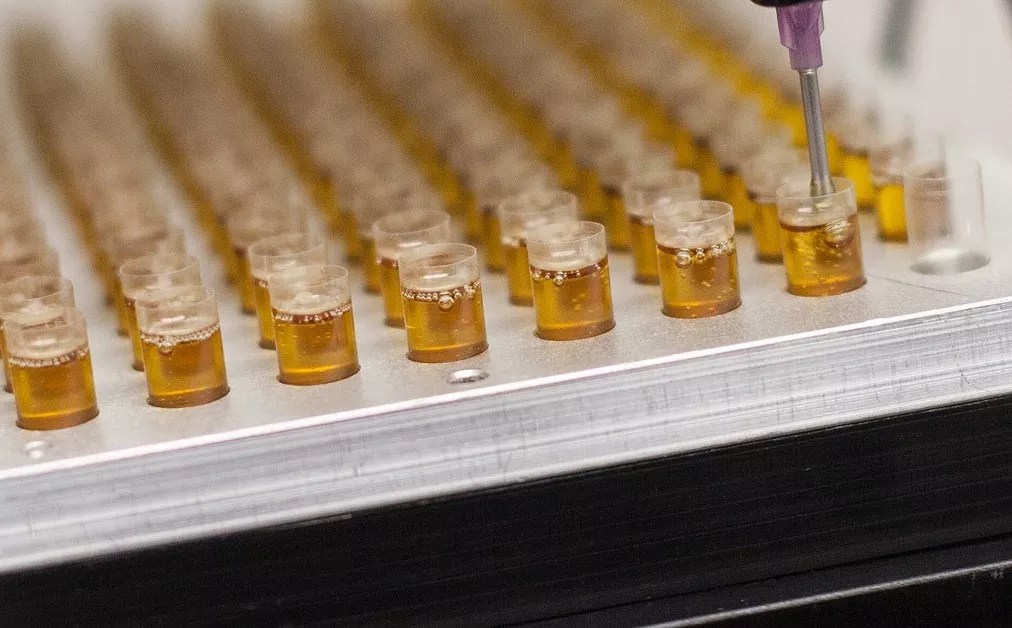
Jacqueline Collins

Audio By Carbonatix
The Federal Trade Commission just penalized a handful CBD retailers across the country for allegedly making scientifically unfounded claims, including one CBD company in Colorado.
Basking in the glory of a successful regulatory flogging and well-placed pun, the FTC announced the results of “Operation CBDeceit” on December 17, reporting six settlements with CBD companies for deceptive claims about their products; five of those settlements involved penalty fees.
According to the FTC, the CBD companies’ marketing and website materials told customers that CBD could treat ailments and illnesses ranging from diabetes to cancer without providing any clinically proven evidence. One business even attributed a nonexistent study to the National Institutes of Health, according to FTC director of consumer protection Andrew Smith.
This is the second time that the FTC has disciplined the CBD industry, says Smith, whose agency reprimanded a California company in April for making false claims about CBD’s prevention or treatment of COVID-19. This is the first time that the FTC has put the bite on multiple businesses at once, though; five of those companies paid between $20,000 and $85,000 in penalities.
“We are not saying CBD products cannot provide some benefit to some CBD consumers, [but] the same rules of the road apply to CBD products as all dietary health products and supplements,” Smith said during a press conference announcing the operation. “Some companies claimed that their CBD products were more effective than prescription medication for that condition. … That proof simply doesn’t exist, and there can be serious life consequences that grasp at the hope.”
A Longmont-based CBD company doing business as Steve’s Goods was one of six outfits snagged by Operation CBDeceit. According to the FTC, Steve’s Goods claimed “without adequate substantiation” that the brand’s CBD and cannabigerol (CBG) products were effective alternatives to prescription medications used to treat conditions including cancer, diabetes and Alzheimer’s disease. The company agreed to pay $75,000 in fines; Steve’s Goods Chief Operating Officer Jordan Turner says the FTC was initially looking for a settlement in the seven figures from owner Steve Schultheis.
According to Turner, the FTC sent warnings to Steve’s Goods earlier this year, when he was trying to update the company’s website and blog posts alluded to in the FTC’s settlement documents, most of which had been published under a previous COO.
“We tried to correct and change course, but we weren’t fast enough,” Turner says. While the blog posts linked to sources and scholastic journals, he concedes that some partnering websites “were a little out there in terms of understanding what is medicine.” The company has hired a law firm to sweep the Internet for any additional dicey information, he notes.
“We had sixty days to do two years’ worth of work when we heard from the FTC,” Turner explains. “As a company, we still have work to do, but [Schultheis] is a good man.”
The other offending businesses in the FTC notice were Bionaturol and First Class Herbalist CBD (both Utah); CBD Meds Inc., Reef Industries and G2 Hemp Inc (all California); and HempmeCBD (Florida). All of the businesses involved were “falsely advertising that their CBD products prevent, treat or cure a wide range of illnesses and health conditions,” said Smith during the press conference, when the FTC laid out its relatively new public approach regarding the hemp-derived-CBD industry.
Although the FTC cooperates with the Food and Drug Administration, the commission enforces a different regulatory process based on advertising claims, according to FTC attorney Richard McKewen, while the FDA “is primarily concerned with safety issues and whether a particular product has been approved with FDA.”
And while the FDA has sent similar warning letters to dozens of CBD companies in the past, Smith noted that the agency doesn’t issue fines.
The FTC’s crackdown on CBD began in 2019, when it first sent warning letters to CBD companies making unsubstantiated claims. Another round of letters was sent out in 2020 regarding claims of CBD’s role in treatment and prevention of COVID-19. That eventually resulted in disciplinary action against California-based Whole Leaf Organics, and the FTC had kept its CBD antenna up since then.
Smith insisted that the FTC doesn’t have a hard-on for the CBD industry, but said it will continue to monitor the growing industry, which is currently unregulated by the federal government despite predictions that it could reach $1.8 billion in sales by 2022.
“Despite the warning letters,” he concluded, “we continued to see a high number of what we obviously considered false and unsubstantiated claims.”